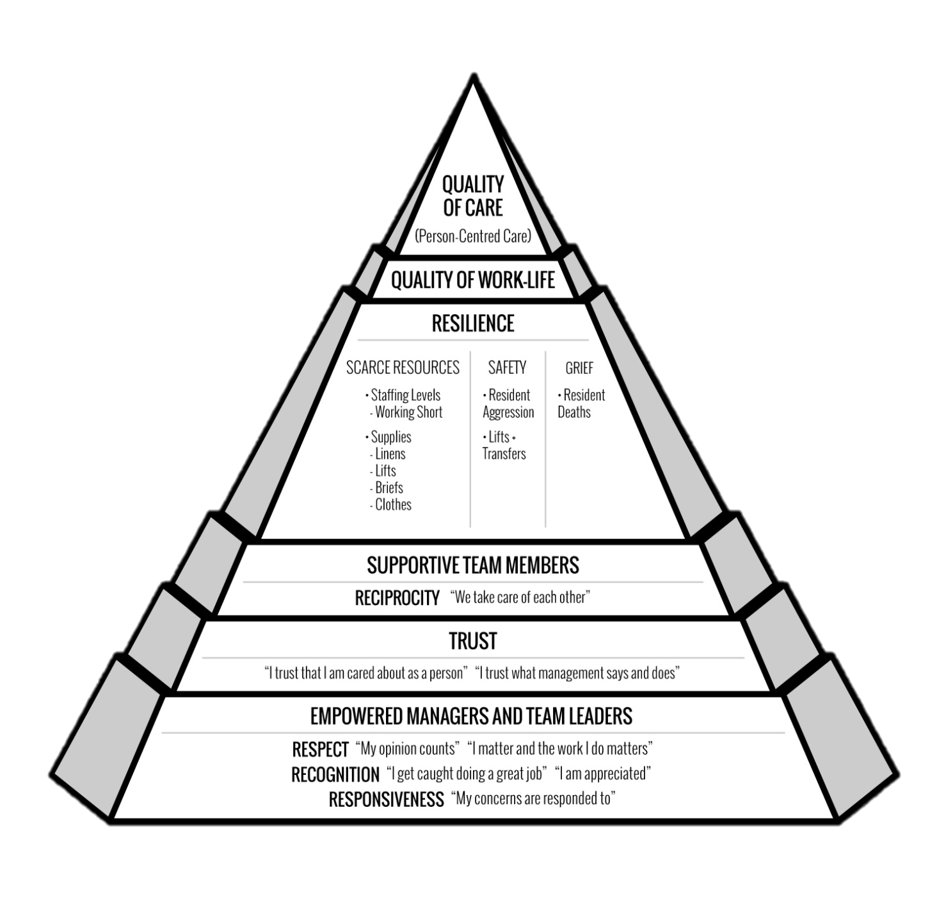
Creating Cultures of Care
Caspar, S, et al. 2020. Creating cultures of care: Exploring the social organization of care delivery in long-term care homes. Journal of Long-Term Care, (2020), pp. 13–29.

As a result of changing demographics, the number of older adults living in long-term care homes (LTCHs) is expected to rise dramatically. Thus, there is a pressing need for better understanding of how the social organization of care may facilitate or hinder the quality of work-life and care in LTCHs. This study explored how the social organization of work influences the quality of work-life and care delivery in LTCHs.
Key Findings:
1) Resident care aides (RCAs) were found to rely on supportive work-teams to accomplish their work successfully and safely.
2) Reciprocity emerged as a key feature of supportive work-teams.
3) Management practices that demonstrated respect (e.g., inclusion in residents’ admission processes), recognition, and responsiveness to the RCAs’ concerns facilitated reciprocity among the RCAs.
Such reciprocity strengthened their resilience in their day-to-day work as they coped with common work-place adversities (e.g., scarce resources and grief when residents died), and was essential in shaping the quality of their work-life and provision of care.
The empowerment pyramid for person-centred care model proposes that the presence of empowered, responsive leaders exerts a significant influence on the cultivation of organizational trust and reciprocating care teams. Positive work-place relationships enable greater resilience amongst members of the care team and enhances quality of work-life, which in turn influences the quality of care they provide. Cultures of caring, reciprocity and trust are created when leaders in the sector have the support and capacity to lead in ways that acknowledge and respect the contributions of all members of the team.
